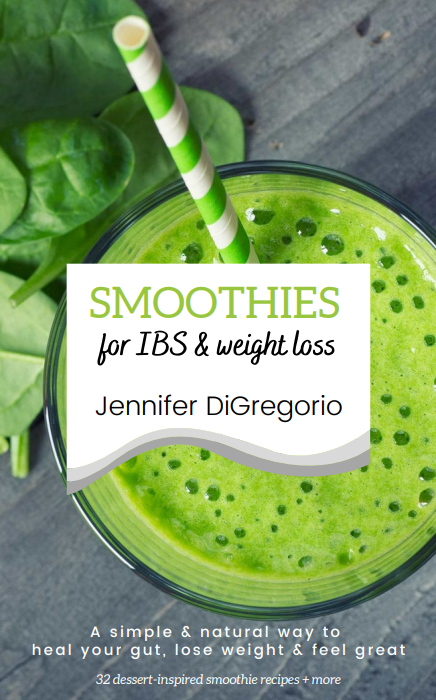In this article you’ll discover why adequate protein intake is so important and reasons why you may need more protein in your diet.
Do you question whether you’re eating too much or too little protein?
The human body is extremely smart and under most circumstances does a good job of telling us what we need through our hunger signals and cravings.
Chris Kresser – an integrative medical doctor in the US – states that when it comes to consuming protein most people eat the right amount for their needs since we are wired to do so. A good recommendation for how much protein one should consume would be – eat as much as you crave.
On average, this number would be around 15% of total calories consumed daily, but there may be times and certain situations that call for you to increase your protein intake anywhere from 20-35% of total calories.
I’ve put together this short article to help you better understand why adequate protein intake is important and specific conditions that may require you to increase your current protein intake.

6 reasons you may need more protein
1. YOU’RE TRYING TO LOSE WEIGHT
There’s a large amount of evidence pointing to the fact that high protein diets are effective for fat loss. Reason being – protein is the most satiating macronutrient when compared to carbohydrates and fats.
When you feel satisfied, you’re less likely to over eat and/or eat foods you probably shouldn’t because your body simply doesn’t crave them.
Check out this study showing that increasing protein intake while maintaining carbohydrate content in a diet lowers body weight by decreasing appetite and spontaneous caloric intake.
To summarize: adequate protein intake = balanced hormones = effortless weight loss.
2. YOU’RE STRESSED
If you’re living in today’s hectic and fast-paced world chances are you’re dealing with some level of stress.
It’s important to be aware that stress can come in many shapes and forms: physical stress from a physically demanding job, regular intense exercise or chronic pain, illness or inflammation in the body; mental stress from work demands, family commitments or financial responsibilities; emotional stress from relationship problems, the loss of someone close, personal or family illness or lack of self-care practices.
When your body is in a state of stress, tissues will begin to break down – a ‘wear and tear’ process where collagen proteins are being used up faster than they are being replaced.
Choosing protein sources that are whole and contain high amounts of collagen will help rebuild your tissues therefore helping to mitigate the damage done by the stress response.
In addition, high stress levels can cause imbalances in your blood sugar levels. Adequate protein intake can help to stabilize your blood sugar levels therefore helping to boost energy levels, reduce mood swings, improve sleep and lift brain fog.

3. YOU’RE A YOGI, GYM GOER OR AN ATHLETE.
When you exercise, your muscle tissues naturally break down so they can rebuild to form stronger muscles. Protein contains essential nutrients for the repair and build process of muscle tissues.
If you want to increase or maintain muscle mass and/or improve performance in your sport/activity, you’ll need adequate protein in your diet.
In addition, rebuilding muscles properly will help to decrease your chances of injury and help your sore muscles heal faster. Protein can be especially helpful after an intense exercise session.
4. YOU’RE GETTING OLDER.
Protein is especially important for the aging population since muscle wasting begins to take place as we get older.
Just because you’re getting up there in age doesn’t mean you can’t continue to build and maintain muscle. That being said, the older you are, the harder it is to process protein which is why you may need more of it.
A higher protein diet can also help to prevent tissue breakdown, which can slow down the aging process and keep your body stronger for longer.
5. YOUR JOINTS ACHE.
Protein, in particular protein sources high in collagen, is vital to many things that keep us young and supple. Unfortunately, our body’s ability to produce collagen diminishes with age, which can lead to the unpleasant feeling of achy joints.
Consuming protein that is high in collagen (either through whole food sources or specialized protein powders) can help repair cartilage, ligaments & tendons, and improve joint pain.
Collagen can also help to reduce inflammation and improve range of motion of the joints.
Note: There are numerous health benefits associated with the consumption of collagen which is why I’ve sourced out a protein powder that is high in collagen. If you are looking for a pure collagen supplement, I recommend Whole Body Collagen.
6. YOU’RE INJURED OR CHRONICALLY ILL.
Traumatic damage to your tissues requires more protein to repair and recover. Protein deficiency can slow down the healing process.
Whether you’re coming out of surgery, trying to heal a wound, recovering from a sport related injury or dealing with chronic illness – you can be certain that increased protein intake will improve your body’s ability to heal.

If you fit into one or more of the above categories then you should consider adding more protein into your diet – whether it be through whole food sources or a high-quality protein powder that can be blended into a smoothie or used in a shake.
My FREE Quick-Start Guide To Smoothies is a great starting place for those looking to incorporate more protein into their diet through healthy smoothies.
Most people who have added my nutrient-rich smoothies to their daily diet have reported noticeable improvements in their health.
I feel that one of the main reasons people see results is due to the increase in quality protein.
For example, most people decide to replace breakfast with a smoothie since it’s a quick and easy meal to prepare for the morning rush. Foods that are commonly eaten in the morning (cereal, toast, bagels, granola bars, juice) are not only very high in sugar and carbohydrates, but low in protein and healthy fats.
It’s no wonder why energy levels begin to skyrocket and fat loss begins to happen when people simply replace these poor quality foods with a healthy smoothie. They are now consuming whole foods that are nutrient-rich PLUS getting the protein your body requires for optimal health.
Notes
Females who consume a 2,000-2,200 calorie diet would aim for roughly 85-100g of protein daily. Males who consumes a 3,000 calorie diet would aim for slightly under 150g of protein daily. Remember to increase these numbers if you fall into any of the categories above.
As a general guideline, 4-6 oz (28-50 g) of animal protein per meal should ensure adequate protein intake.

















0 Comments